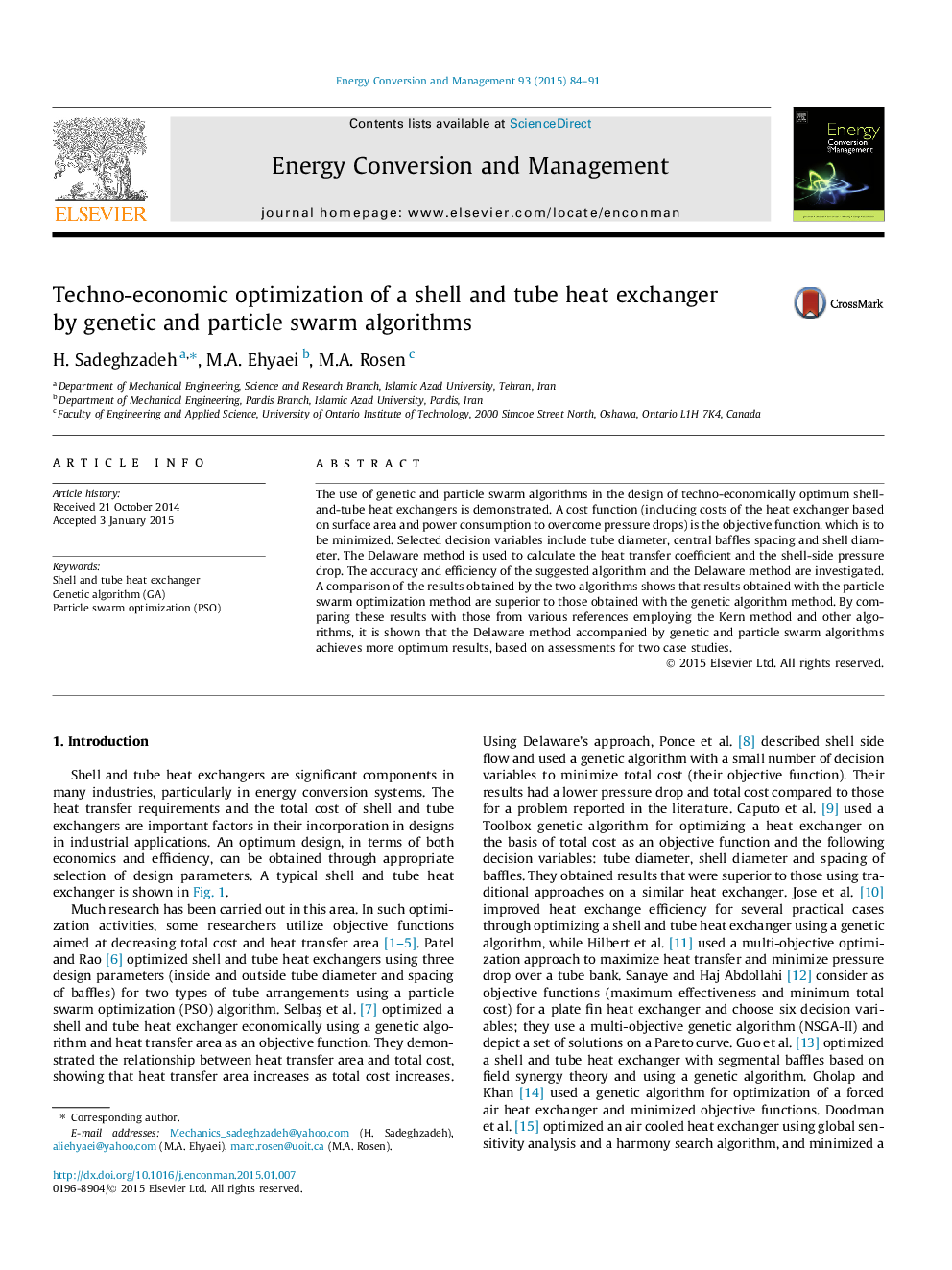| Article ID | Journal | Published Year | Pages | File Type |
|---|---|---|---|---|
| 7162916 | Energy Conversion and Management | 2015 | 8 Pages |
Abstract
The use of genetic and particle swarm algorithms in the design of techno-economically optimum shell-and-tube heat exchangers is demonstrated. A cost function (including costs of the heat exchanger based on surface area and power consumption to overcome pressure drops) is the objective function, which is to be minimized. Selected decision variables include tube diameter, central baffles spacing and shell diameter. The Delaware method is used to calculate the heat transfer coefficient and the shell-side pressure drop. The accuracy and efficiency of the suggested algorithm and the Delaware method are investigated. A comparison of the results obtained by the two algorithms shows that results obtained with the particle swarm optimization method are superior to those obtained with the genetic algorithm method. By comparing these results with those from various references employing the Kern method and other algorithms, it is shown that the Delaware method accompanied by genetic and particle swarm algorithms achieves more optimum results, based on assessments for two case studies.
Related Topics
Physical Sciences and Engineering
Energy
Energy (General)
Authors
H. Sadeghzadeh, M.A. Ehyaei, M.A. Rosen,
